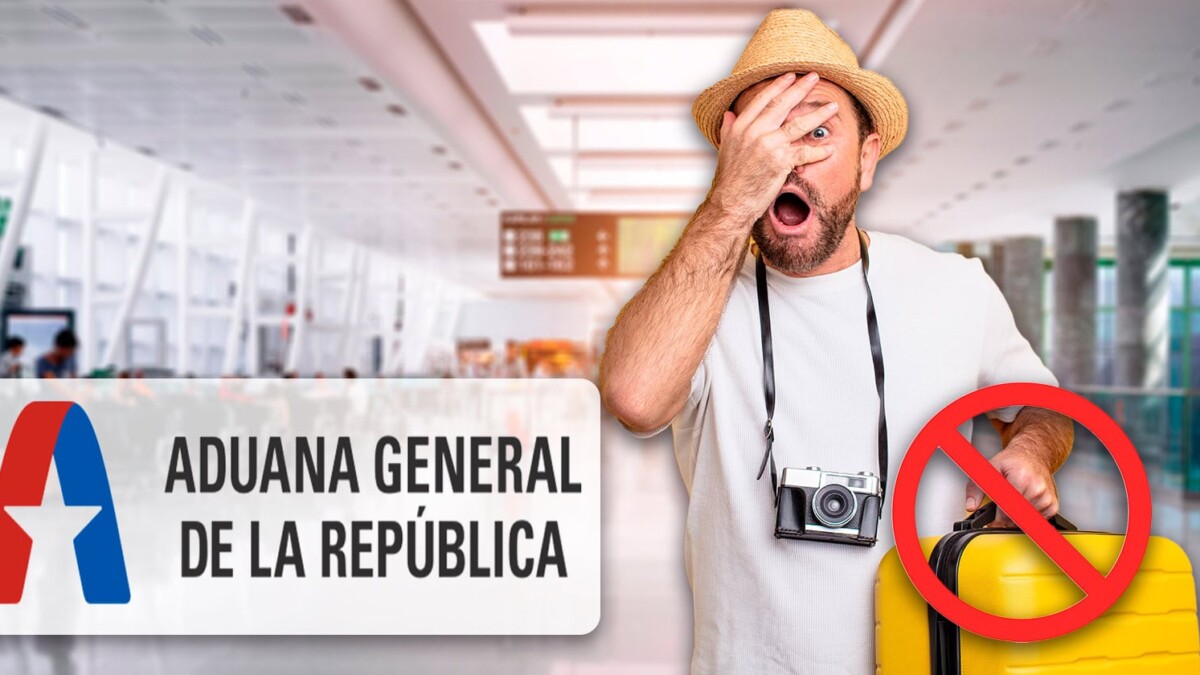The official provisions set by the General Customs of the Republic regarding items or products that are prohibited for import or export are based on current and updated regulations. What should you know about this? Here we detail it according to international merchandise traffic regulations.
Anyone traveling out of the country or arriving in the national territory must comply with state regulations that control and oversee permissible or prohibited object circulation. If a traveler does not comply with these guidelines, a seizure process is implied.
Therefore, within the regulations of prohibited products for transport in luggage are drugs or narcotics, as well as other psychotropic substances or hallucinogens.
Precursor substances or chemical compounds that could be used for illicit purposes are banned in luggage, in addition to explosives, blood products, and literature or objects that may be obscene or pornographic, including also items that threaten the general interests of the nation.
What items or products cannot be exported?
Exporting items or products is the process of sending goods from one country to another for economic compensation. According to this, the following objects are not exportable:
- Cultural goods that have been declared part of the National Cultural Heritage.
- Manuscript books or incunabula (published between 1440 and 1500).
- Books and pamphlets that are coined by libraries belonging to the National System of Public Libraries, or by other Cuban Organizations and Institutions, as well as Cuban books of “R” editions.
- Foreign books, pamphlets, and serial publications printed in the 16th to 18th centuries, and Cuban publications from the 18th century.
- Lobsters, in any variety of presentation or quantities.
This regulation responds to the protection of decorative and utilitarian objects of great cultural and artistic interest to the nation, while the non-export of lobsters is due to the protection of the marine ecosystem and population of aquatic invertebrates, as established by the official Customs site.
What items or products cannot be imported?
Importing items is the process of acquiring goods from a foreign country for commercial purposes within the national territory. Accordingly, the following are non-importable products:
- Psychotropic substances or hallucinogens.
- Precursor substances.
- Explosives.
- Blood products.
- Drugs and narcotics.
- Literature, articles, and objects that are obscene or pornographic in nature, as well as any other items that threaten the general interests of the Cuban nation.
- Air conditioners that have a capacity greater than 1 ton or 12,000 BTU.
- Electric stoves or cookers, except for induction ceramic cooktops, in their variety of models, provided their electrical consumption does not exceed 1500 Watts per focus.
- Electric ovens, except for microwaves, provided their electrical consumption does not exceed 2000 Watts.
- Electric resistances, in any of their variations and models.
- Light motor vehicles (motorcycles, cars, motor bicycles)
- Engines and car bodies (frames) for cars and motorcycles.
- Animal products susceptible to carrying diseases (pigs, cattle, goats, sheep, and all species of ungulates).
This regulation responds to the protection of citizens and national security in controlling international merchandise and traveler traffic, in support of the national economy and environmental conservation. It also regulates the introduction of products into the territory that could function as carriers of diseases, according to the official Customs site.
If you need more information on other topics related to phytosanitary and veterinary provisions, as well as the prohibition of transferring liquids, aerosols, and gels, in addition to the current Decree-Law, you can access the official website of the General Customs of the Republic or learn more about Cuban Customs on our page.
✅Para Recibir TODAS las Noticias GRATIS 👉Síguenos desde Aquí

